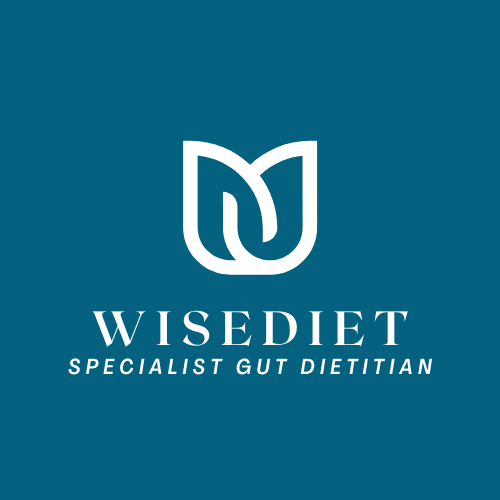Endometriosis & how diet can help…
Endometriosis is a chronic condition where tissue similar to the lining inside the uterus grows outside it, causing pain, inflammation, and sometimes fertility problems. It is linked to inflammation and hormone (oestrogen) levels in the body.
.
Research shows that what you eat can influence inflammation and hormone levels, which may affect endometriosis symptoms and possibly the risk of developing the condition. While diet cannot cure endometriosis, certain foods may help reduce inflammation and ease symptoms.
Research repeatedly shows that the diet eaten in the Mediterranean Region is anti-inflammatory
Much of the diet advice for endometriosis follows the guidance from the Mediterranean Diet (also known as an Anti-inflammatory Diet): This diet emphasises fish, olive oil, nuts, fruits, and vegetables. It has been shown to reduce inflammation and pain related to endometriosis
Click here to download Mediterranean Diet & Low FODMAP recipe ideas
Foods that may help endometriosis
Omega-3 fatty acids: Found in fatty fish (like salmon, mackerel) which contain EPA and DHA. Other sources such as walnuts, flaxseeds, and chia seeds need the body to convert the ALA to EPA & DHA. (NB: other nuts and seeds contain only trace amounts of ALA) Omega-3s have natural anti-inflammatory effects that can reduce pain and inflammation linked to endometriosis. Some studies show they can lower inflammatory chemicals in the body and may reduce lesion size.
Fruits & vegetables: Rich in antioxidants and polyphenols, these help fight inflammation and oxidative stress. High intake of green vegetables and fruits, especially citrus, has been associated with lower risk and reduced symptoms
Fibre-rich foods: Whole grains, legumes, fruits, and vegetables increase fibre, which helps regulate oestrogen levels and supports gut health. Good gut health can reduce overall inflammation
Polyphenols & resveratrol: Found in foods like extra virgin olive oil, grapes, berries, nuts, tea, and red wine. These compounds reduce inflammation and oxidative stress, potentially slowing disease progression.
Extra virgin olive oil: contains a natural polyphenol called oleocanthal, which works in the body in a similar way to ibuprofen, helping to reduce inflammation.
Herbs & spices: contain polyphenols which help to reduce inflammation e.g. thyme, oregano, basil, rosemary, mint, sage, nutmeg, ginger, pepper and chili pepper.
Turmeric: is a spice with powerful anti-inflammatory and protective effect. Research suggests that it can help lower certain hormones and inflammation-related chemicals in the body, support the natural removalof damaged cells, and may slow the growth of abnormal tissue. Its benefits are stronger when eaten with black pepper.
Vitamin C, D & E: These vitamins have antioxidant and anti-inflammatory properties. Supplementation has been shown to reduce oxidative stress and pain in some women with endometriosis
Dairy products (calcium & vitamin D): Some studies suggest dairy intake, particularly yogurt and cheese, may reduce endometriosis risk, possibly through calcium and vitamin D content
Foods to limit or avoid
Red & processed meats: Higher consumption is linked to increased risk of endometriosis and may worsen symptoms. These meats can raise oestrogen levels and promote inflammation
Saturated & trans fats: Found in butter, lard, fried foods, and many processed snacks. These fats increase inflammation and may worsen endometriosis symptoms
Highly processed foods & sugary drinks: These often contain trans fats and refined sugars that promote inflammation
Alcohol & high caffeine intake: Some research associates alcohol and excessive caffeine with increased inflammation and symptom severity, though findings are mixed
Specialist diets that may help
Anti-Inflammatory Diet (same as Mediterranean Diet): Focuses on eating whole, fresh foods like fruits, vegetables, legumes, whole grains, nuts, seeds, fish, herbs & spices and healthy oils while avoiding processed foods and sugars. This diet may help reduce inflammation, pain and improve quality of life.
Low FODMAP Diet: Designed to reduce gut symptoms like bloating and pain in women with endometriosis and irritable bowel syndrome (IBS). This diet should be done under professional guidance.
Click here to download Mediterranean Diet & Low FODMAP recipe ideas
References
● Szczepanik et al., 2024, Endometriosis diet treatment (pp. 1-12)
● Radowicka et al., 2025, Endometriosis can anti-inflammatory foods help (pp. 1-5)
● Barnard et al., 2023, Endometriosis diet prevention & treatment review (pp. 1-5)
● Osmanlioglu & Sanlier, 2021, The relationship between endometriosis and diet (pp. 2-14
● Piecuch et al., 2022, Endometriosis - what should I eat (pp. 2-11)
● Chen et al., 2025, Endometriosis Association with inflammation index (pp. 7-8)
● Sienko et al., 2024, Endometriosis omega 3 and resveratrol effect (pp. 1-3)
● Nirgianakis et al., 2020, Endometriosis Diet interventions systematic review (pp. 2-16)





